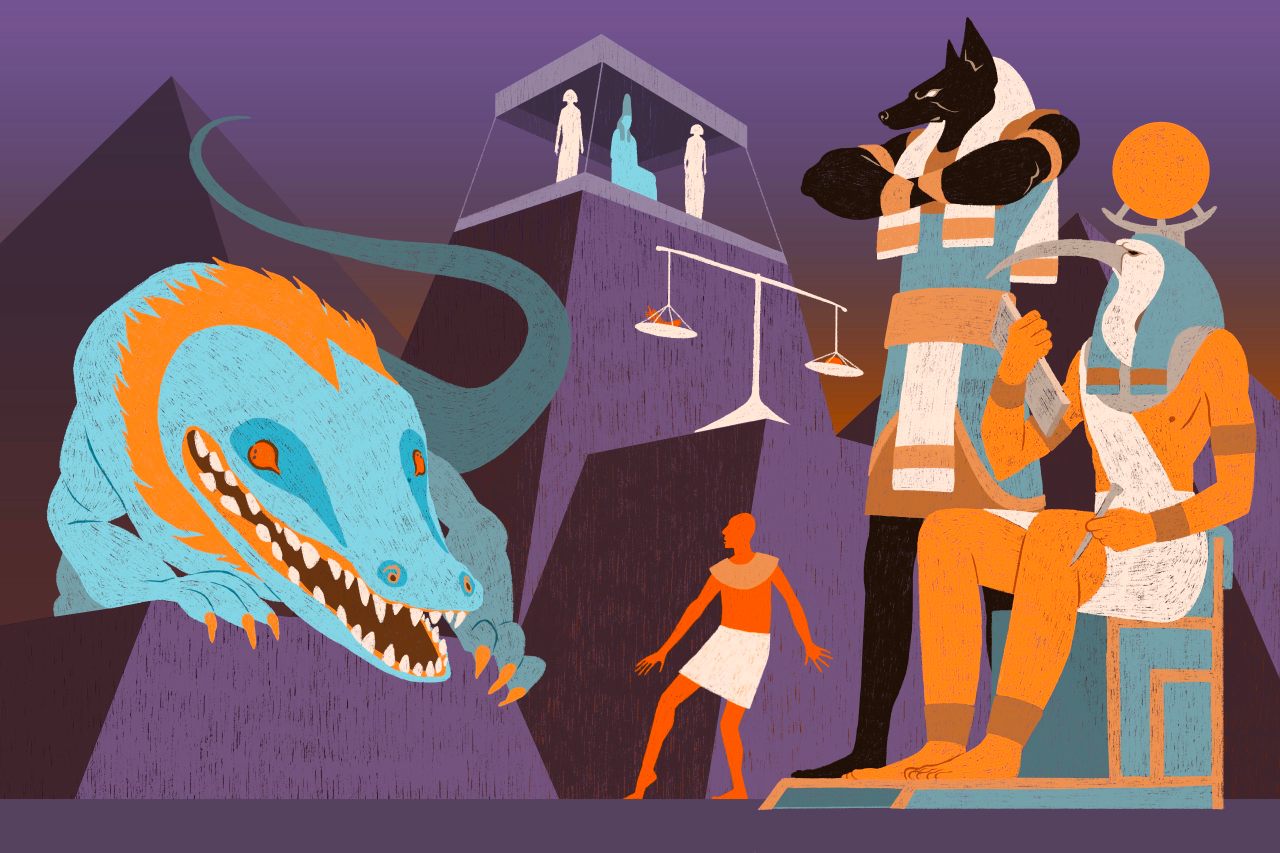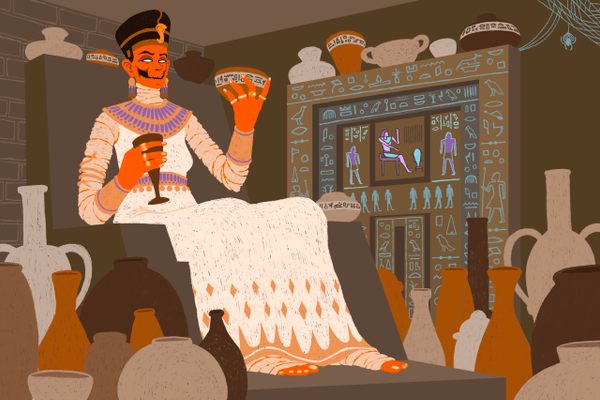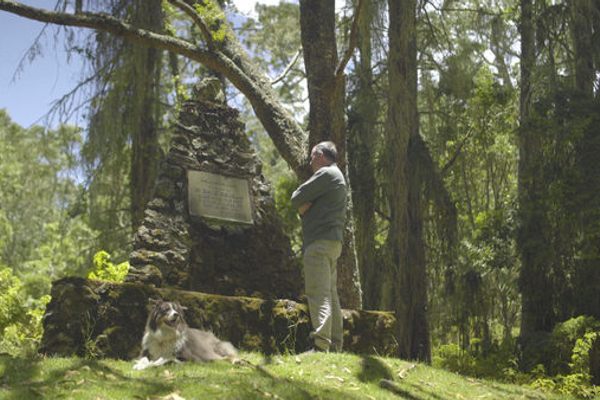In Ancient Egypt, Judgement of the Dead Was Severe
To enter the realm of Osiris, the dead had to complete a long to-do list—and face a terrifying devourer of souls.
Each week in October, University of Manchester Egyptologist Nicky Nielsen will share an intriguing aspect of ancient Egyptian beliefs and traditions surrounding death and the afterlife.
The young man, barely out of his teens, was left alone in the stuffy prison cell. It was the height of summer in 1155 BC and sweat poured down his face, mixing with tears as he contemplated his fate. His name was Pentawere and he was a prince of Egypt—but he was one of the younger sons of King Ramesses III, and not in the line of succession. The king was now dead, murdered by rebels who had selected Pentawere as a figurehead to place upon the vacated throne. But the coup had failed, and the conspirators had been arrested. Pentawere had also been apprehended, although we do not know whether he was truly guilty of the crimes of regicide and patricide or just an unwitting pawn.
However, from a text known as the Turin Judicial Papyri, we know that the judges who interrogated Pentawere decreed that he had committed rebellion against his rightful lord. In deference to his royal rank, he was not publicly executed or mutilated like some of the conspirators, who had ears and noses lopped off. Instead, Pentawere was left alone in his cell, a rope or a vial of poison laid in front of him. The choice was his.
Pentawere may have been afforded many privileges in life, but in ancient Egypt, a serious crime required punishment in life and, even worse, the denial of an afterlife, even for a prince of royal blood.
In 1881 a cache of royal mummies was found at Deir el-Bahri, the site of an important mortuary temple built by the Pharaoh Hatshepsut on the west bank of the Nile near Luxor. Among them was an unusual mummy belonging to a young man, now known as Unknown Man E. Unlike the other mummified bodies, no attempt had been made to remove his internal organs. He had not been submerged in a solution of natron, a natural mineral salt, to desiccate the body. He had not been wrapped in clean perfumed linen. Instead, he had been hurriedly covered in a goatskin and stuffed into an ill-fitting wooden box. The process of natural desiccation had contorted his features, locking his jaws in an eternal silent scream. Subsequent DNA analysis of this mummy showed that he was one of the sons of Ramesses III and is, most likely, Prince Pentawere himself.

This suggests that forcing the prince to take his own life was not enough of a punishment. His corpse had to be desecrated in what seems almost like a mockery of the resource-heavy and time-consuming royal mummification ritual. This was not simply the petty action of a vengeful state. It was a direct attempt to jeopardize Pentawere’s successful entry into the afterlife.
The process of mummification, the preservation of the body through the removal of the viscera and the submergence of the corpse in natron, was both a physical and spiritual process. The mummification transformed the body of the deceased from something human to a divine figure and associated it with the Ruler of the Dead, Osiris. A spell from the Pyramid Texts, funerary guidelines that date back to the Old Kingdom, alludes to the importance of stopping the body from decomposing after death: “Your flesh, O this Osiris [name of the deceased], do not decay! Do not putrefy! Do not let your scent be bad!”
But even if your body was perfectly preserved through mummification, there were still obstacles between you and successfully reaching the afterlife.
In order to navigate these dangers, both royal and non-royal members of the elite relied on spells from a compendium of funerary literature known colloquially as the Book of the Dead. This text was written on papyrus scrolls deposited inside the tomb, and sometimes even on the linen used to wrap the dead body.
Among the many spells needed to ensure safe passage to the afterlife was a series of negative confessions. These were to be spoken in front of the tribunal of gods to guarantee that the deceased could be found worthy of entry into the realm of Osiris. The negative confessions range from relatively innocuous sins, such as “I have not uttered lies,” to the denial of serious crimes: “I have not slain men and women.”
In addition to the individual’s recitation of the negative confessions during their judgement, their heart would be weighed against the feather of Maat, the goddess of truth and order, who also represented cosmic justice. The deceased would be led forward by Anubis, the god of the necropolis, while Thoth, the god of writing and scribes, recorded the verdict.
Those who failed the judgement of the gods faced a terrible fate. A slathering beast known as Ammit—part crocodile, part lion, and part hippopotamus—sat eagerly nearby during the weighing of the heart. Any soul who was found to have a heart heavy with sin would be devoured by the monster, their entire existence wiped from the cosmic plane. Perhaps that is the fate which befell Pentawere as he stood before the throne of Osiris. Perhaps that explains the scream frozen upon his visage.















Follow us on Twitter to get the latest on the world's hidden wonders.
Like us on Facebook to get the latest on the world's hidden wonders.
Follow us on Twitter Like us on Facebook